11 glimmers of hope for LGBT rights in 2017
Colin Stewart is a 45-year journalism veteran. He is the…
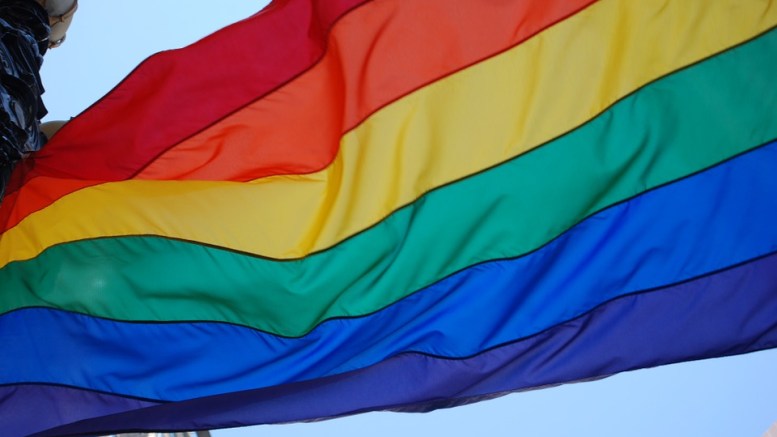
Hopeful steps toward recognition of LGBT rights occurred this year in many otherwise homophobic countries, even as brutal anti-LGBT crackdowns were under way elsewhere.
Below are thumbnail descriptions of encouraging developments in 11 nations, regions, and international organizations. (For the grimmer side of 2017, watch for an upcoming article.)
INDIA
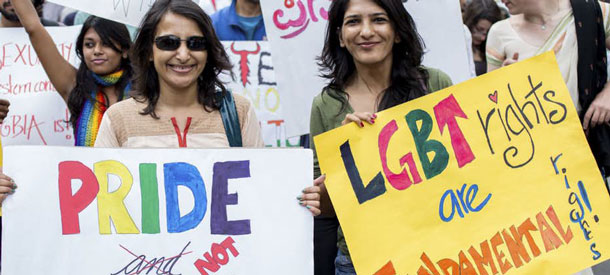
Indian Supreme Court ruling might overturn anti-LGBT law. India’s Supreme Court has raised hopes that it might overturn its own 2013 ruling that reinstated the country’s anti-homosexuality law. The reason for that optimism is that the court in 2017 declared privacy to be a fundamental right, a finding that the court itself indicated could lead to a renewed, stronger legal challenge to its 2013 ruling.
LEBANON
Lebanon court rejects anti-gay law. A lower court in Lebanon ruled this year that homosexuality is natural and therefore not a criminal offense. That ruling chips away at the country’s anti-LGBT stance, but isn’t as far-reaching as if Lebanon’s highest court had made it.
GAMBIA
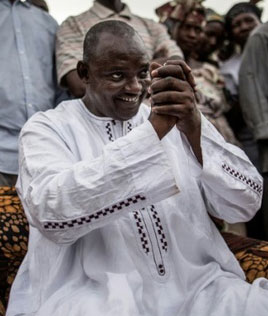
LGBT hopes in Africa In the Gambia, new President Adama Barrow took over from his violently homophobic predecessor, Yahya Jammeh. Although the country’s anti-gay law has not been repealed, it apparently is no longer being enforced. This month the country’s Jollof News printed an interview with Vivian Affoah, a local media expert who stated:
“There are no reported incidents of state-perpetrated online abuse or attacks on the basis of gender or sexuality. This government may have a softer stance on sexual diversity. President Barrow was recently asked about his position on homosexuality and he indicated that it was “not an issue in The Gambia.”
(Also see “Gambian leader shuns his predecessor’s anti-gay stance.”)
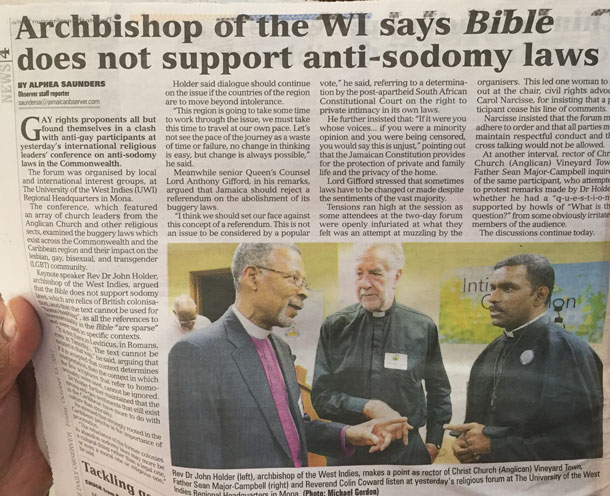
JAMAICA
Jamaica still clings to its anti-gay “buggery law,” but voices favoring repeal are getting louder.
Jamaica newspaper seeks reversal of anti-gay law. Jamaica’s largest newspaper endorsed activist Maurice Tomlinson’s constitutional challenge against that law. Legal proceedings in that case are still in a preliminary stage.
Top Anglican in Jamaican seeks repeal of buggery law. The Rt. Rev. Dr. Howard Gregory, leader of the Anglican Church in Jamaica and the Cayman Islands, declared his opposition to the law.
Jamaica celebrates Pride twice a year — a national celebration in August and a second celebration in October in Montego Bay.
TRINIDAD
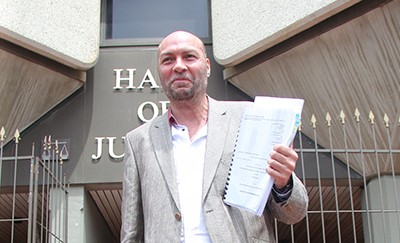
Legal challenge confronts Trinidad’s anti-gay laws. LGBTI rights activist Jason Jones has filed suit to overturn anti-gay laws in Trinidad and Tobago. As with the Jamaican case, the Trinidad proceedings are still at a preliminary stage.
THE CARIBBEAN
LGBTQI coalition gears up in eastern Caribbean. A new coalition of LGBTQI organizations in the eastern Caribbean is setting its sights on improving the lives of the region’s sexual minorities. The Eastern Caribbean Alliance for Diversity and Equality Inc. (ECADE) was launched late last year,
Caribbean trans activists form advocacy group. Eight transgender activists from the Bahamas, Haiti, Jamaica, Guyana and Antigua formed a new Caribbean advocacy initiative, the Transgender Caucus Group. Its initial organizational meeting was held during the Caribbean Women and Sexual Diversity Conference (CWSDC) on Saint Lucia, which was organized by ECADE.
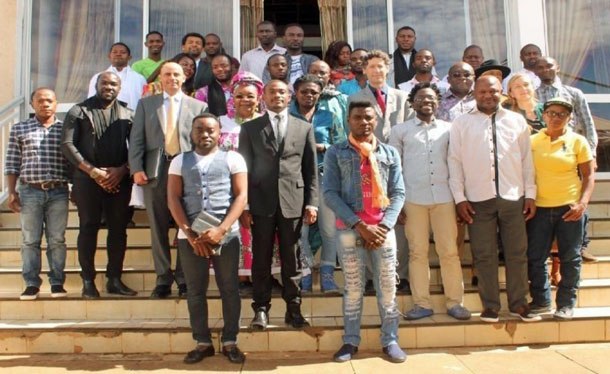
CAMEROON
In Cameroon, LGBT groups start working together — at last. Many LGBT rights advocates in Cameroon are cooperating on a human rights monitoring project.
TUNISIA
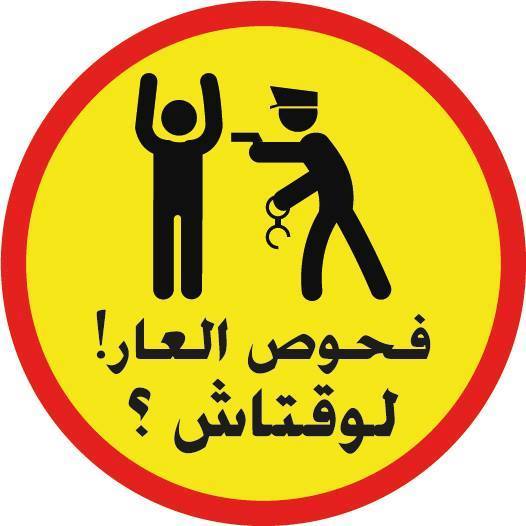
New coalition in Tunisia fights for LGBTQI rights. Twenty LGBTQI and allied activist associations formed a coalition fighting for LGBTQI rights in Tunisia.
Police continue to arrest sexual minorities under the country’s repressive anti-LGBT law, but the defendants have many supporters.
Activist group Shams wins in court.Shams, a prominent Tunisian group pushing for the decriminalization of homosexuality, turned back a legal challenge by opponents who argued that the government should withdraw the group’s official recognition and force it to shut down.
Tunisia drops anal tests, but not its anti-gay law. The country pledged to the United Nations that it would no longer impose forced anal exams, which had been used (as in many homophobic societies) as a supposed test for homosexual activity by male defendants.
NIGERIA
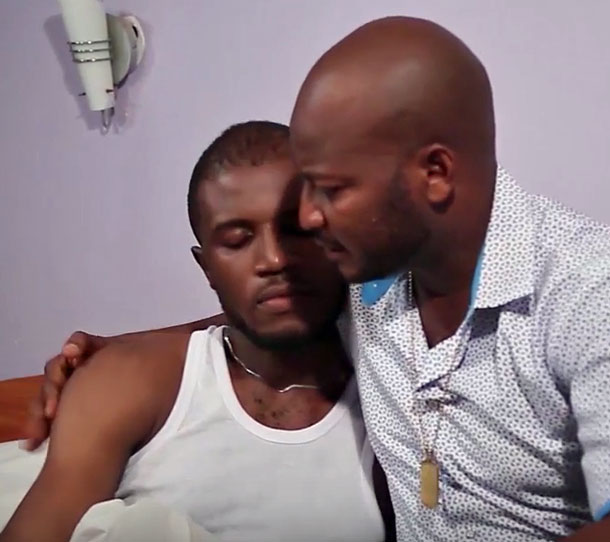
Anti-LGBT violence and harassment remain severe problems, but Nigerian society is slowly becoming less scared and less hateful toward LGBT people.
Survey: Nigerians grow more tolerant of LGBT people. A recent survey found that Nigerians have become a bit more tolerant of LGBT people. In the latest survey, 39% said they should have equal access to healthcare, housing and education — a 9% increase from the 2015 survey.
A surprise: Nigerian drama portrays gay love positively. Amidst great hostility toward homosexuals, a new mainstream Nigerian online video series dares to portray love between two men.
COMMONWEALTH OF NATIONS
Former British colonies inch toward LGBTI rights. The Commonwealth of Nations, comprising 52 countries that mostly were former British colonies, has granted legal recognition to an LGBTI group for the first time. Overall, the group has a poor record on LGBTI rights — of the 52 countries in the Commonwealth, 36 have laws against consensual same-sex intimacy.
AFRICAN COMMISSION ON HUMAN AND PEOPLES’ RIGHTS
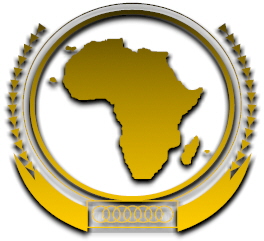
Progress toward defending sexual minorities in Africa. Africa’s continent-wide human rights commission — the African Commission on Human and Peoples’ Rights — has started taking abuses of LGBT people seriously. Although 33 of its member countries have laws against homosexual activity, the commission has started pushing for recognition of the human rights of LGBT people. That pressure comes in the form of resolutions and guidelines, which don’t have the force of law but are influential throughout most of Africa.




